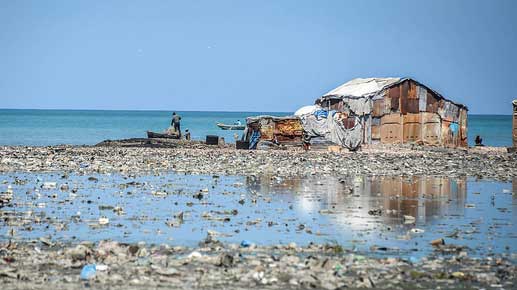
Source: Relief Web
According to the World Bank, climate change could potentially push approximately 100 million people into poverty within the next ten years.
Drought, flooding, or severe storms impact communities living in poverty and the world’s poorest regions.
The majority of the world’s poorest communities rely on farming and hunting and gathering to survive, and just one natural disaster can devastate an entire family or community.
Families living in poverty often turn to detrimental coping mechanisms, including withdrawing children from school, eating fewer meals, and selling precious assets.
Building resilient, proactive communities is key to tackling climate change and its adverse effects that can lead to poverty.
Read full story at: Relief Web
